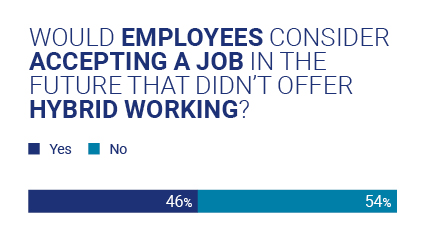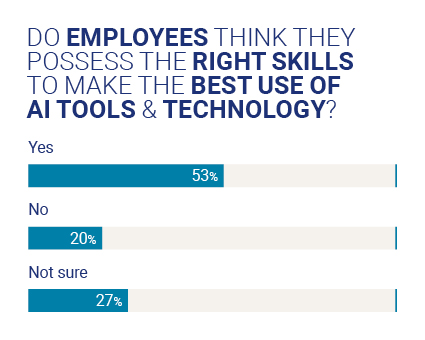Over the last 12 months, these three factors are set to impact PAs and EAs in 2024. Several factors have shaped the world of work. Sparking debates around the cost of living and salary levels, returning to the office versus flexible working and the extent to which AI could impact jobs.
According to new research released by leading specialist in workforce solutions and recruitment. Hays, a quarter (25%) of PAs and EAs have received a cost-of-living pay rise in the last 12 months. Just over a third (36%) of these professionals believe the salary increase has had a noticeable impact on their life.
Cost of living could prompt job moves for PAs and EAs
Despite the challenging economic climate, three quarters (75%) of PAs and EAs haven’t received a cost-of-living pay increase within the last 12 months. Whilst 62% of employees are satisfied with their salary. More than a third (36%) are currently dissatisfied with their pay level.
The rising cost of living could have an impact on the number of PAs and EAs looking to change jobs in the next 12 months. As 40% say they are more inclined to make a move as a result of the cost of living. Nearly half (49%) of those professionals who are more likely to move say it’s because their current salary doesn’t cover their living expenses.
Whilst 48% of PAs and EAs say the current cost of living is not affecting their decision to move job. A small number (12%) are less inclined to change roles as a result of the economic climate and of those professionals. 46% are worried about job security in a new position. As well as this, over a third (36%) are concerned they won’t get the same benefits in another role.
Flexible working still popular
Despite a recent push from many employers for staff to return to the office, the majority (58%) of PAs and EAs continue to work in a hybrid way. Whilst over a quarter are now based fully in the workplace (28%) and 14% work fully remotely.
In terms of productivity, more PAs and EAs say they are most productive when working remotely (54%). Rather than in the office (35%). On top of this, over half (54%) of professionals working in these roles would not consider accepting a job in the future that didn’t offer hybrid working. In comparison to 46% who would be willing to forgo this flexibility.
Looking to the year ahead, well over half (57%) of PAs and EAs plan to find a role that is more of a mix of hybrid. Working in the next 12 months and 2 in 10 (20%) intend to find a role that is based completely remotely. Aside from salary, achieving a positive work-life balance (38%) is the most important factor for PAs and EAs when considering a new role.
AI uptake slow but professionals confident in their skillset
As it stands, only 12% of PAs and EAs surveyed have used an AI tool such as ChatGPT in their current role. There is still a sense of uncertainty surrounding how AI will affect jobs. Being, 42% of PAs and EAs are unsure if AI will impact their role. Followed by more than a quarter (29%) who believe AI won’t impact their job at all.
As well as this, 17% of PAs and EAs are optimistic AI will have a positive impact on their job. In contrast to 13% who are concerned AI will have a negative affect on their role.
When it comes to skills, over half (53%) of PAs and EAs are confident they are possessing the right skills to make the best use of AI tools and technologies. There is still room for improvement. However, as 20% of professionals working in these roles do not feel they have the right skills to utilise AI, these three factors are set to impact PAs and EAs in 2024.
Roddy Adair, Director at Hays specialising in Personal & Executive Assistants
He comments: “The cost of living has certainly presented challenges for both employers and professionals and has unsurprisingly been a primary driver of pay rises in recent months.”
Research demonstrates that the economic climate could prompt PAs and EAs to change jobs. So in order to retain the top talent, employers ought to offer their staff competitive salaries. We’ve also seen the roles of PA and EA evolve significantly in recent years, so pay levels must reflect this evolution and meet growing salary expectations.
As well as boosting pay, employers must acknowledge the continued importance of offering flexible working patterns today.
We’re witnessing an ongoing sense of uncertainty as to how recent advances in AI could affect jobs. However, PAs and EAs should rest assured that the human value they provide cannot be replaced. And these new technologies could help to support them in their roles rather than threaten their jobs.”
About the research: The survey was conducted between the 10th of August – 11th September 2023. Receiving 14,915 responses, including 120 respondents working as PA’s or EA’s.
We also have a results from a 2023 salary and recruiting trends report for you.












